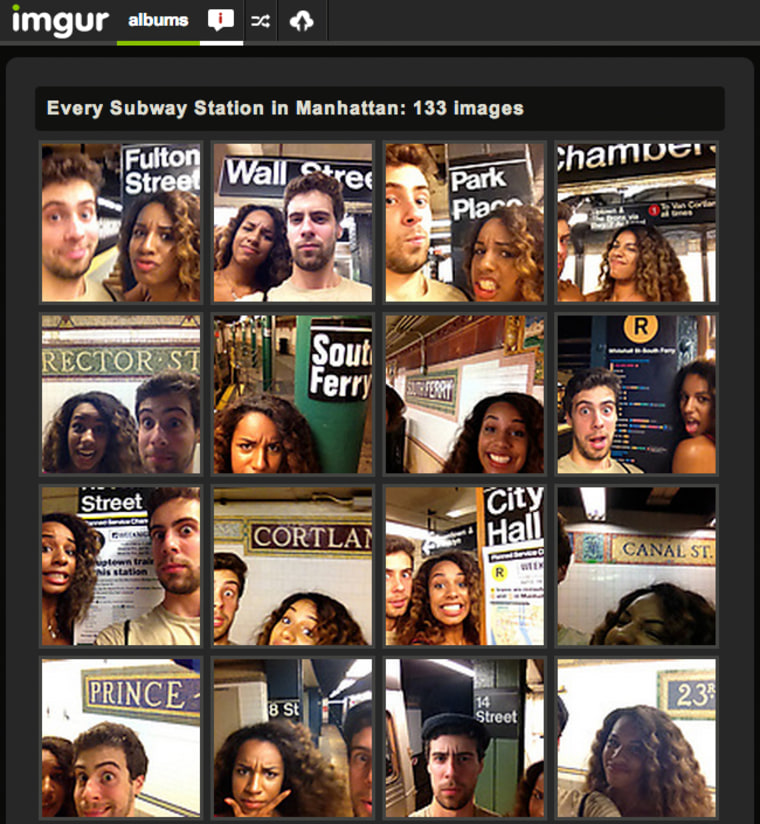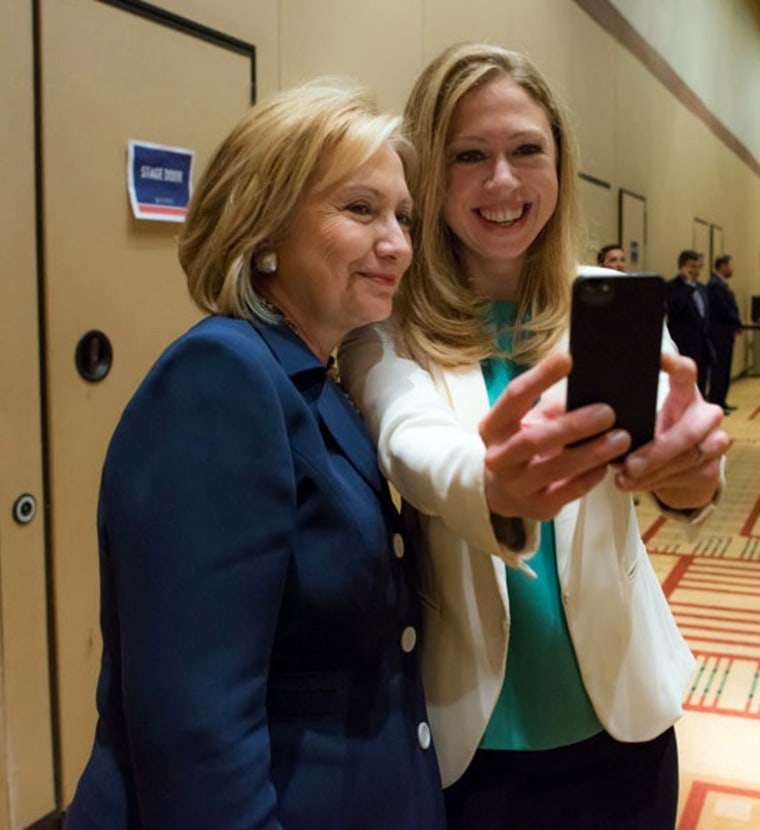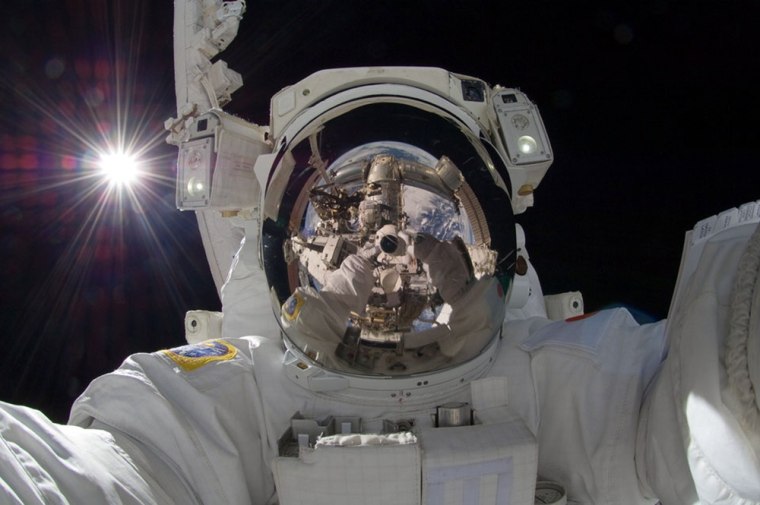A Manhattan couple visited 118 subway stations in New York City last weekend, taking "selfies," or self-portraits, of themselves at each one, and posting them all on Imgur. It made them 15-seconds-of-fame stars, landing them lots of coverage from national media outlets across the country.
Meanwhile, controversy erupted this week when Rolling Stone's cover featured suspected Boston Marathon bomber Dzhokhar Tsarnaev, with the magazine using a photo that wasn't a mugshot or a professional one, but a selfie he'd posted on his Twitter profile before the tragedy.

The selfie's been around since the days of MySpace. Now, tech culture researchers say it's has matured into more than a vanity symbol.
Selfies have always been popular with celebrities. Rihanna, Madonna, Tyra Banks, Justin Bieber are all ace selfie-takers. (Rihanna even shared selfie tips in a magazine interview.) More recently, "Game of Thrones" teen star Maise Williams started a Vine selfie video stream with a devoted following.
Even the socially savvy Martian rover Curiosity took a "selfie" on the Red Planet last fall, and space station astronaut Luca Parmitano took one on a spacewalk. The Obama kids were caught taking selfies at the president's last swearing-in. Hillary and Chelsea Clinton took their first selfies backstage at the Clinton Global Initiative conference in June.
But the difference now is how many of us are engaging with them, too. You thought Instagram was for posting photos of dessert? The hashtag "#Me" ranks as the third most used tag on the photo-sharing site, while "#food" is all the way at No. 22, according to a tally by Webstagram. And just ask Google: It's never been more popular.

For selfie makers, the act of photographing themselves and sharing those photos online is an expression of identity, despite what has come to be considered by some as personal over-sharing on the Internet.
"It has to me the sense of 'I share, therefore I am,'" Sherry Turkle, a psychologist and MIT professor of social studies of science and technology, told NBC News.
"People need to do this now. It's not just a fad."
Turkle, the author of several books about technology and culture, including "Alone Together," sees the selfie as a very specific statement of identity.
But to Catharine Telfair, who is working on a dissertation at UC Berkeley about 20th-century self-portraits, it's the meaninglessness of the images that makes them so much fun.
She believes there's a "tremendous weightlessness" that makes selfies different from all other kinds of self-portraits that artists have created through history.
Taking a selfie is like sneaking a moment in a photo booth. "It's setting yourself up for the machine to snap the image as it is," she told NBC News. "You just make a funny face and see what happens."
Of course a selfie isn't a selfie unless it's immediately shared, and to Telfair, that's also what makes them more than an exercise in "Me, me, me."
"You have all these people commenting, adding their own… that's something that makes them different from just the interminable desire to stare into a mirror," she said.
So, when tweets and Facebook posts have us talking — at the same time — to everyone at once and no one at all, selfies can be an invitation to start a conversation.
"The one thing you can always take a photograph of every time you have your phone is your face," Dawn Wilson, who wrote about photo self-portraits as art in the Journal of Aesthetics and Art Criticism, told NBC News. "Because technology [today] is entirely personal, it lends itself particularly well to self portraiture."
"You couldn't imagine this five years ago," said Wilson, a lecturer in philosophy at the University of Hull in the U.K. Digital cameras helped, but it wasn't until forward-facing cameras were added to smartphones in the last few years that selfies really took off.
Why? Being able to take pictures of ourselves has changed the way people pose for the camera, making themselves more open to scrutiny with their photos, she says.
"It's the posing for the camera in new ways that's been changed by technology, not the kinds of images." That and our willingness to pull out a camera in situations we wouldn't have in the past: in the middle of dinner perhaps, or as we are getting dressed to go to work.
As headset cameras like Google Glass gets more popular, Wilson believes, the way people pose in front of other people, or even in front of landmarks or buildings — will change things again.
As watchers, our expectations of the selfie have morphed, too; it's not off-putting when we see photos our friends take of themselves.
"People are becoming much more expectant of seeing the selfie," Turkle says, adding, "There's been a definite shift ... and now people no longer think it's narcissistic to get that picture."
Which is to say, we've grown to expect photos not just of the Golden Gate Bridge, but photos of our friends grinning in front of it.
Over at millennials' blog Thought Catalog, Sam Kasse makes a case for selfies being an expression of confidence. "One of my favorite pastimes at work is to (discreetly) scroll through my Instagram feed and see pictures of my friends feeling good about themselves," she writes.
Nidhi Subbaraman writes about technology and science. Follow her on Facebook, Twitter and Google+.
